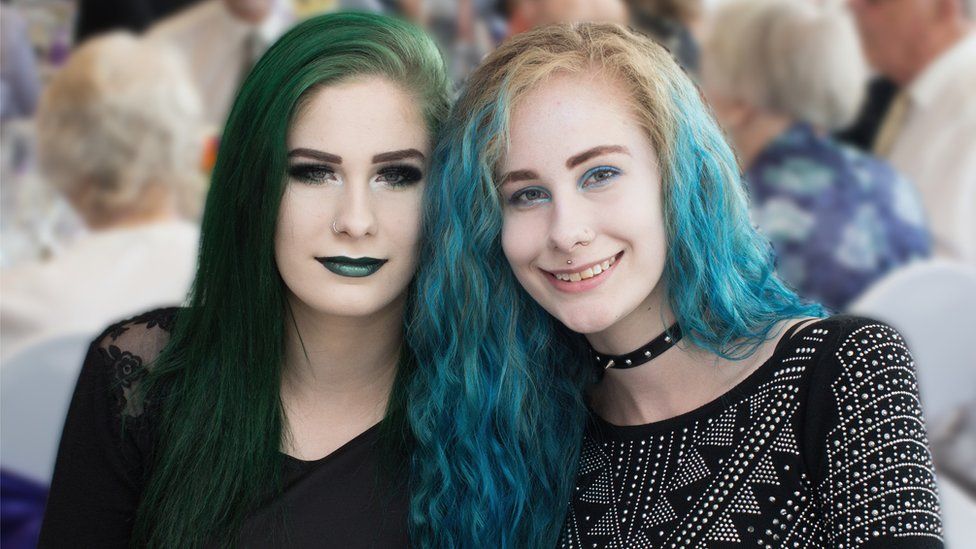
"Can you imagine what it's like going to bed not knowing if you're going to wake up and still have two daughters?"
Jane Cannon spoke these "horribly prophetic" words in a meeting with a council less than 48 hours before her daughter Sam Gould killed herself.
Tragically, Sam's twin sister Chris would also take her life just a few months later.
As reviews take place to examine what happened, Jane and her husband Ian Gould are left questioning what more could have been done to save their daughters.
Growing up in Sawbridgeworth, Hertfordshire, they were "normal, healthy, happy children", Jane says.
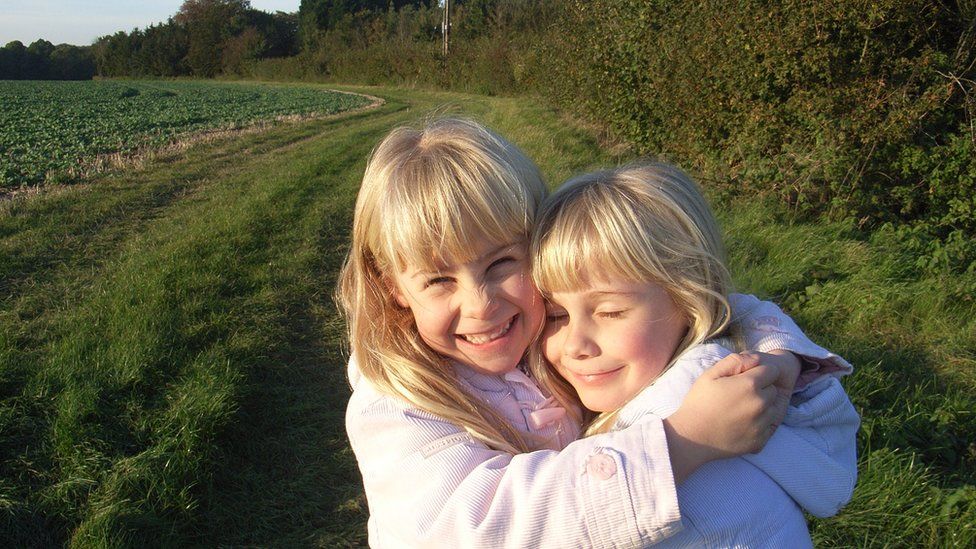
Born in November 2001, they were considered to be bright from a young age.
Ian Gould, a twin himself, says their philosophy as parents was to "expose them to as much fun and activity as possible".
They speak of the girls ballet dancing by the pool on holiday in Egypt, their membership of various sports teams and their "hobby of a lifetime", horse riding.
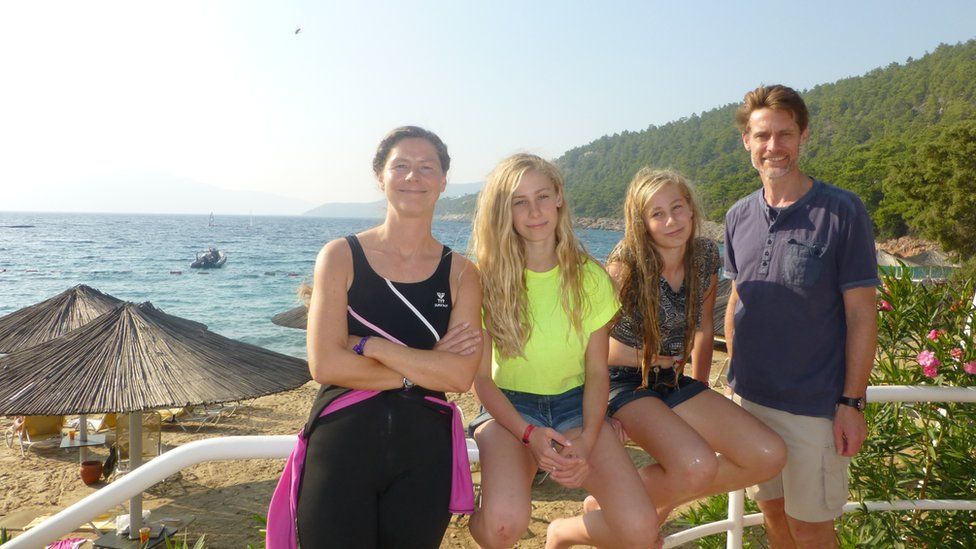
However, Ian and Jane say there were early signs in their childhood that things "weren't right".
This included Sam pulling out her eyelashes, eyebrows and hair. The girls received the lowest scores their school had ever seen in psychometric testing.
"We're only parents. We aren't trained to join the dots like that and, sadly, none of the professionals did," Jane says.
In 2014, when the family lived in Fulbourn, Cambridgeshire, friends raised concerns that Sam and Chris were posting "suicidal and anorexic thoughts" on social media.
A year later, it was discovered that Sam had been self-harming.
Ian, who worked for an intellectual property company, and Jane, then a director in the Home Office who had received an MBE, felt "completely helpless".
They decided to give up their careers to focus on helping their daughters.
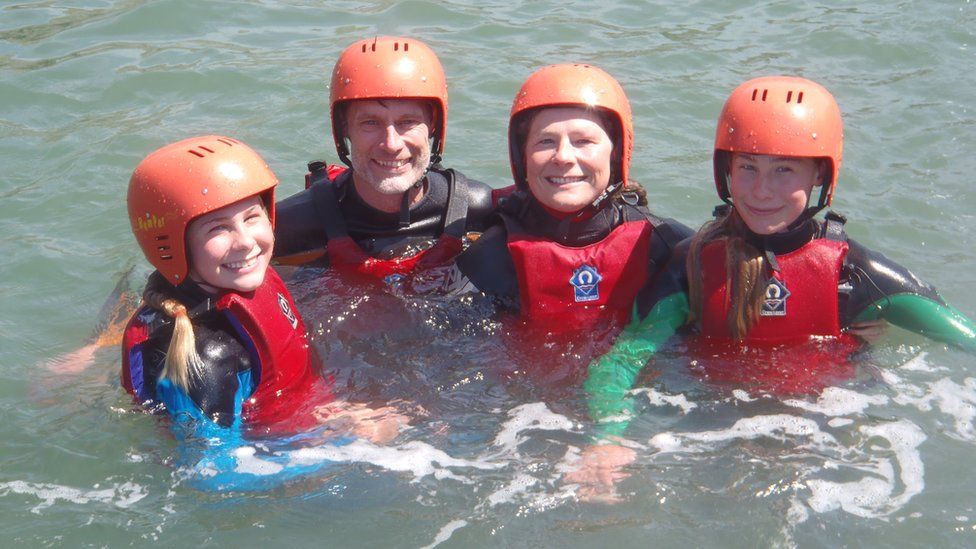
At the age of 14, in May 2016, Chris made an attempt to take her own life.
The following month, Chris disclosed she and Sam had been sexually abused from the age of five into their teenage years, and named their alleged abuser.
Jane says the revelation left them in "total shock".
"I don't want you to misconstrue the word misbelieve, because at no point did we ever not believe them, but that's what your brain tells you - 'this can't be true'.
"We've tried our hardest to protect our girls; how can this have been happening and us not know about it?"
In one sense, this moment provided them with an opportunity.
"We thought 'that's it, that's the answer we've been searching for', why two girls who had everything going for them are falling apart."
Hampshire Police investigated the case but, at a time when the girls were struggling with their mental health, they did not wish to give video evidence, which Ian says was the only option offered to them.
Officers closed the case in late 2016, having never interviewed the alleged abuser.
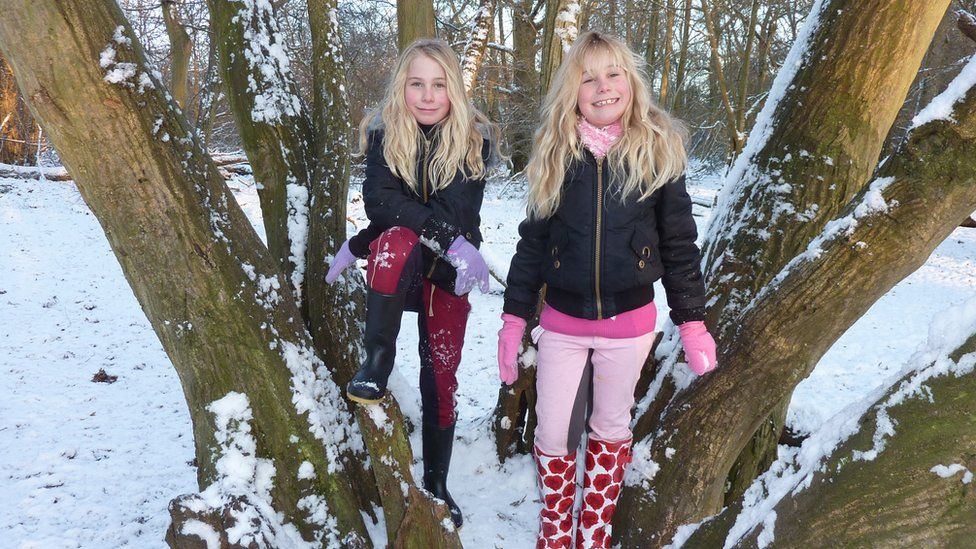
"We had to tell the girls that the police weren't going to do anything about it, that they weren't even going to interview him," says Ian.
"That's the thing that really sticks in my mind."
Chris and Sam felt "invalidated and not believed", their parents add.
The girls were each other's "best supporter" and were "fiercely, fiercely loyal", says Jane.
Both spent time at mental health units as inpatients but were separated, in line with standard procedure around siblings.
Despite being 70 miles (113km) away from one another, they were determined to remain in contact.
But Chris was transferred to a different unit which did not allow any form of communication, which their parents say was "the worst separation".
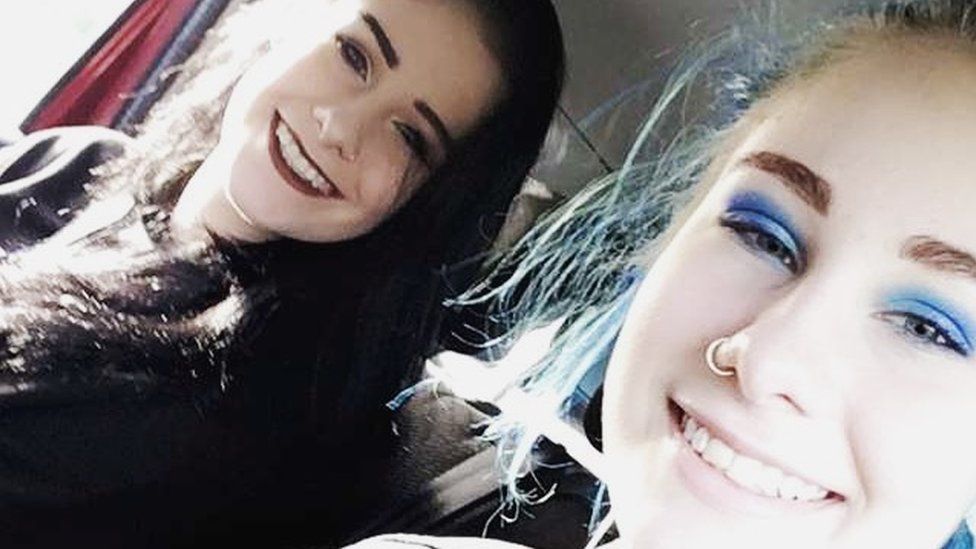
Ian and Jane struggled to get their daughters diagnosed with a specific mental illness, despite showing signs of emerging borderline personality disorder.
Jane says it seemed the disorder was a "Voldemort diagnosis" for children, likening it to the Harry Potter character who cannot be named.
"Because they wouldn't name it, we couldn't educate ourselves on it," she says.
"The girls were desperate to know what was wrong with them, they said so themselves - 'why do I feel like this, what's wrong with me?'
"The professionals refused to give them an answer, even though, as time went on, the answer became clearer and clearer [about their diagnosis]."
Both girls had a passion for heavy rock music and the family went to Reading festival in August 2018.
On 1 September, Sam and her parents watched a film together and everything seemed normal.
But in the early hours of the morning, she was found dead by her mother. She was aged 16.
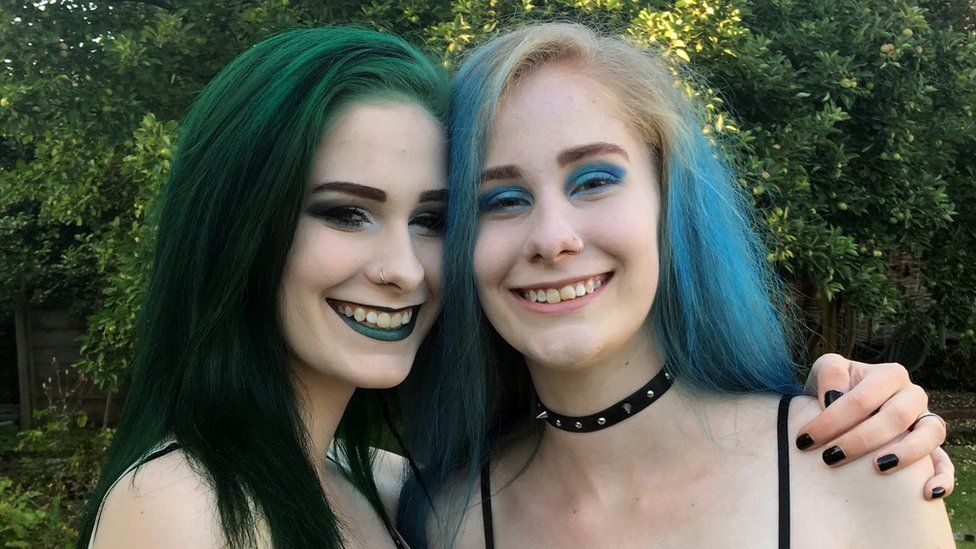
Sam's death had a profound impact on Chris, who watched paramedics try to resuscitate her.
Chris slept one night in her sister's bed, but never felt able to stay overnight at the family home again. She had her 17th birthday in November; her first, and only, without Sam.
Her parents were "very grateful" for a level of flexibility after Sam's death that was not normally offered by the nearby mental health unit, run by Cambridgeshire and Peterborough NHS Foundation Trust (CPFT).
Chris became "more akin to a day patient".
But, tragically, Chris took her own life on 26 January 2019, four months after her sister.
Asked what impact Sam's death had on Chris, Ian and Jane say almost in unison "it killed her".
Jane adds: "From that moment on, she would tell anybody... it was a case of 'when' not 'if' she went to join her sister.
"Our entire life revolved around 'how can we make try to make Chris's life worth living? How can we keep her alive to help her see she can be a surviving twin and make a life for herself?'
"Even though she still had mental health problems, during 2018 she had started to really get her life back on track. Had Sam not died, she'd be at university now doing something fantastic, and we have no doubt about that at all."
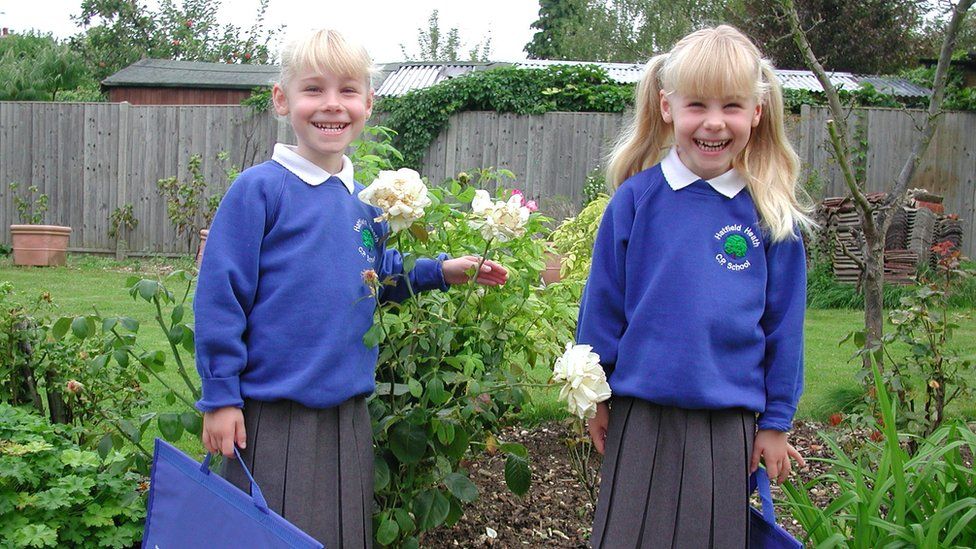
At Chris's inquest last month, professionals accepted there had been "inconsistencies" in her diagnosis, which the coroner found had been "confusing" for Chris.
The coroner, Nicholas Moss QC, said CPFT appeared "reluctant" to use the term borderline personality disorder in adolescents, like Sam and Chris.
He said this was apparent "even when a highly-specialist second opinion had supported" that diagnosis, and warned there were "risks" associated with that reluctance.
In his 62-page findings, Mr Moss said Chris's suicide did not mean she was failed by the professionals or her "devoted parents".
"Rather, it demonstrates the pervasive and traumatic harm caused by the alleged abuse, horribly amplified, in Chris's case, by the suicide of her sister," he said.
His words are echoed by Ian and Jane. "Every single professional that dealt with the girls said the same - their death was caused by their illness and their illness was caused by the sexual abuse," says Jane.
After the girls died, and following further police work, the alleged abuser was sent a letter alerting him to the fact an accusation had been made. The Crown Prosecution Service said there was insufficient evidence to charge.
The coroner raised concerns that there had been "no follow-up" to Sam and Chris while they were still alive, to keep open the option of providing an account at a later stage, to be used as evidence.
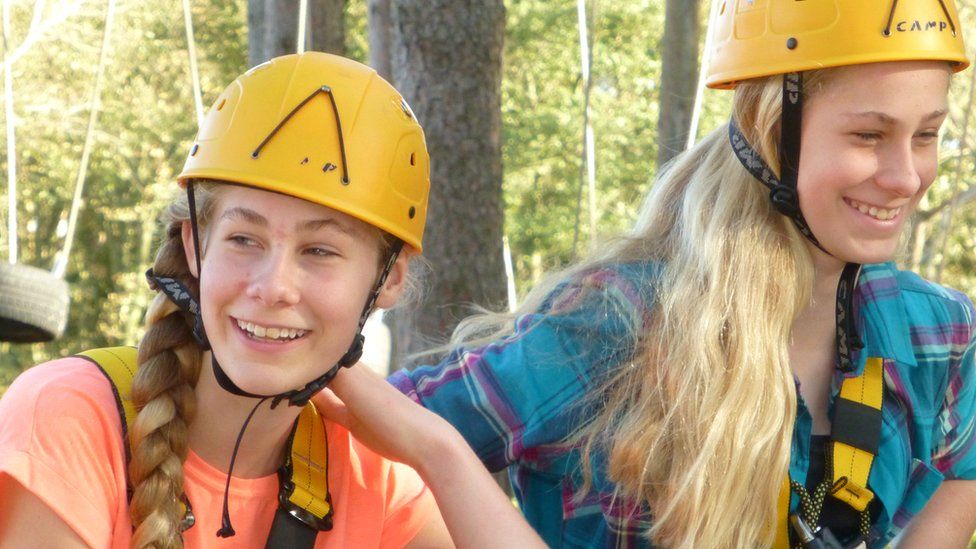
He added there was no guidance on what should be communicated to alleged child sex abuse victims "both suffering from mental-ill health and initially unwilling to provide an evidential account".
The National Police Chiefs' Council is reviewing its guidance "to see if there are any gaps that need to be addressed".
Hampshire Police said of its investigation: "There was insufficient evidence in this case to provide any realistic prospect of conviction, and the decision to take no further action took account of the wishes of the victims and the wider concerns of the family at the time."
It said it had changed the way it handled such cases after the deaths.
Cambridgeshire Police said it had strengthened its approach to investigating childhood sexual abuse and was reviewing the coroner's findings.
A spokeswoman for CPFT said it would also review the coroner's findings and changes it had made included a new service for young people in mental health crisis.
The Cambridgeshire and Peterborough Safeguarding Children Partnership Board commissioned serious case reviews.
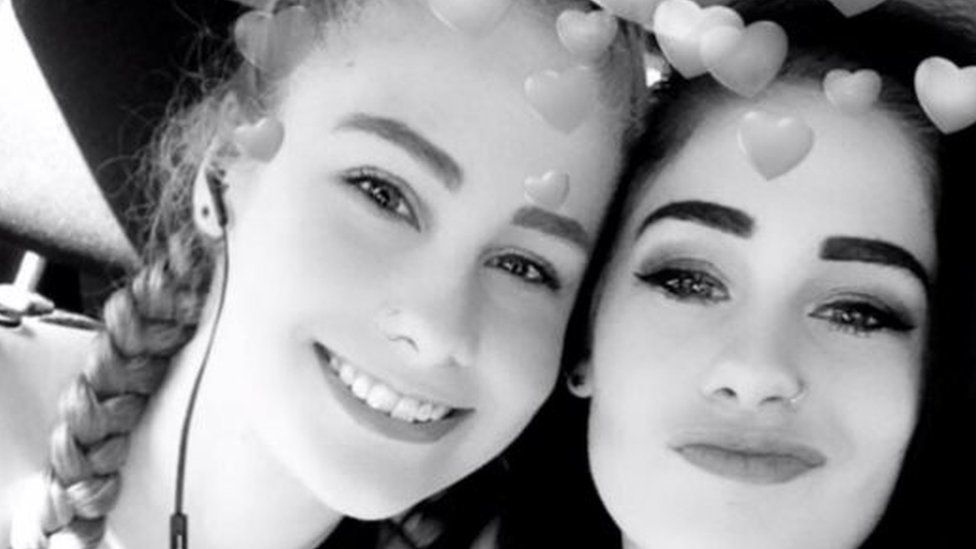
Both parents plan to focus on raising awareness of the issues their daughters faced, as they come to terms with their deaths.
Jane says she wants those with influence to see their story and "understand how badly society fails people, particularly young people, with mental health".
"Even with parents to advocate for them, we still didn't manage to make society do what it needed to do to get our girls better," she says.
If you are feeling emotionally distressed, help and support is available via BBC Action Line.

Find BBC News: East of England on Facebook, Instagram and Twitter. If you have a story suggestion email eastofenglandnews@bbc.co.uk
"had" - Google News
June 18, 2021 at 06:40AM
https://ift.tt/3q6rk1p
Why the twins who had everything 'fell apart' - BBC News
"had" - Google News
https://ift.tt/2KUBsq7
https://ift.tt/3c5pd6c
Bagikan Berita Ini














0 Response to "Why the twins who had everything 'fell apart' - BBC News"
Post a Comment